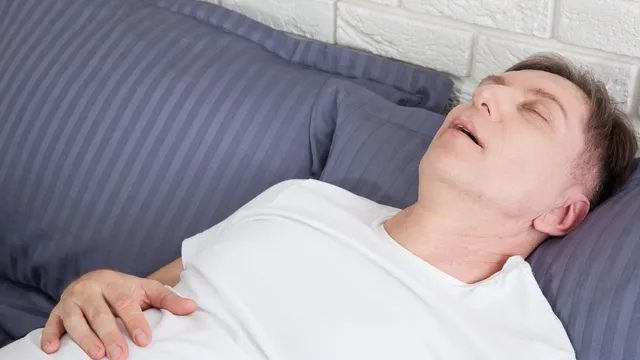The Impact of Sleep Apnea on Your Oral Health

When we think about sleep apnea, we often associate it with the disruption of a good night’s rest. However, the consequences of this sleep disorder go beyond just fatigue and can have a significant impact on your oral health. In this blog, we will explore the relationship between sleep apnea and your mouth, teeth, and gums, highlighting why it’s essential to address sleep apnea not only for your sleep quality but also for your oral well-being.
Understanding Sleep ApneaWhat is Sleep Apnea?
Sleep apnea is a common sleep disorder characterized by repeated interruptions in breathing during sleep. These interruptions, known as apneas, can last for several seconds and occur multiple times throughout the night. There are three primary types of sleep apnea:
- Obstructive Sleep Apnea (OSA): This is the most common type and occurs when the muscles at the back of your throat relax excessively, blocking the airway.
- Central Sleep Apnea: This type is less common and happens when your brain fails to send the proper signals to the muscles responsible for controlling breathing.
- Complex Sleep Apnea Syndrome: Also known as treatment-emergent central sleep apnea, this type is a combination of both obstructive and central sleep apnea.
The Impact of Sleep Apnea
Sleep apnea can lead to a range of health issues, including daytime fatigue, difficulty concentrating, high blood pressure, and an increased risk of heart disease and stroke. But what many people don’t realize is that it can also affect your oral health.
The Relationship Between Sleep Apnea and Oral HealthDry Mouth
One of the most common oral health problems associated with sleep apnea is dry mouth (xerostomia). When you experience repeated apneas during the night, you tend to breathe through your mouth, which can dry out your oral tissues. A dry mouth not only leads to discomfort but also increases the risk of tooth decay and gum disease because saliva plays a vital role in neutralizing acids and preventing bacterial growth in the mouth.
Teeth Grinding (Bruxism)
Sleep apnea and teeth grinding (bruxism) often go hand in hand. Bruxism involves clenching or grinding your teeth, which can lead to tooth damage, jaw pain, and headaches. People with sleep apnea are more likely to experience bruxism, likely because the body’s response to an apnea event can include clenching the jaw or grinding the teeth as a way to reopen the airway.
Temporomandibular Joint Disorder (TMJ)
The temporomandibular joint (TMJ) connects your jawbone to your skull and plays a crucial role in speaking, eating, and breathing. Sleep apnea-related teeth grinding and jaw clenching can strain the TMJ, potentially leading to temporomandibular joint disorder (TMJ disorder). Symptoms of TMJ disorder include jaw pain, headaches, and difficulty opening and closing the mouth.
Increased Risk of Gum Disease
Research suggests that individuals with sleep apnea may be at a higher risk of developing gum disease, also known as periodontal disease. The exact reasons for this link are not entirely clear, but it is believed that the inflammation associated with sleep apnea may contribute to gum disease.
Treating Sleep Apnea and Protecting Your Oral HealthDiagnosis and Treatment
If you suspect you have sleep apnea or have been diagnosed with the condition, seeking treatment is essential. Effective treatment can improve your sleep quality, reduce the risk of associated health problems, and protect your oral health.
- Continuous Positive Airway Pressure (CPAP) Therapy: This is the most common treatment for obstructive sleep apnea. It involves wearing a mask that delivers a constant stream of air to keep your airway open during sleep.
- Oral Appliances: These devices, also known as mandibular advancement devices, can help reposition the jaw and tongue to keep the airway open. They are handy for mild to moderate cases of sleep apnea.
- Lifestyle Changes: Lifestyle modifications, such as weight loss, avoiding alcohol and sedatives before bedtime, and sleeping on your side, can help alleviate sleep apnea symptoms.
- Surgery: In severe cases of sleep apnea that do not respond to other treatments, surgical options may be considered to remove or reposition excess tissue that is blocking the airway.
Dental Care for Sleep Apnea Patients
If you are receiving treatment for sleep apnea, it’s essential to communicate with your dentist about your condition and treatment plan. Here’s how you can protect your oral health while managing sleep apnea:
- Regular Dental Check-Ups: Schedule regular dental check-ups and cleanings to monitor and address any oral health issues promptly.
- Custom Oral Appliances: If you use an oral appliance to treat sleep apnea, work with your dentist to ensure it fits properly and does not cause dental problems.
- Oral Hygiene: Practice good oral hygiene by brushing and flossing regularly. Your dentist may recommend specific products, such as fluoride toothpaste or mouth rinses, to combat dry mouth and reduce the risk of cavities.
Take Action for a Healthy Smile and Better Sleep
Ready to prioritize your oral health while managing sleep apnea? Contact Champion Dentistry today to schedule a dental check-up and discuss how we can support your oral health needs as you navigate sleep apnea treatment.






